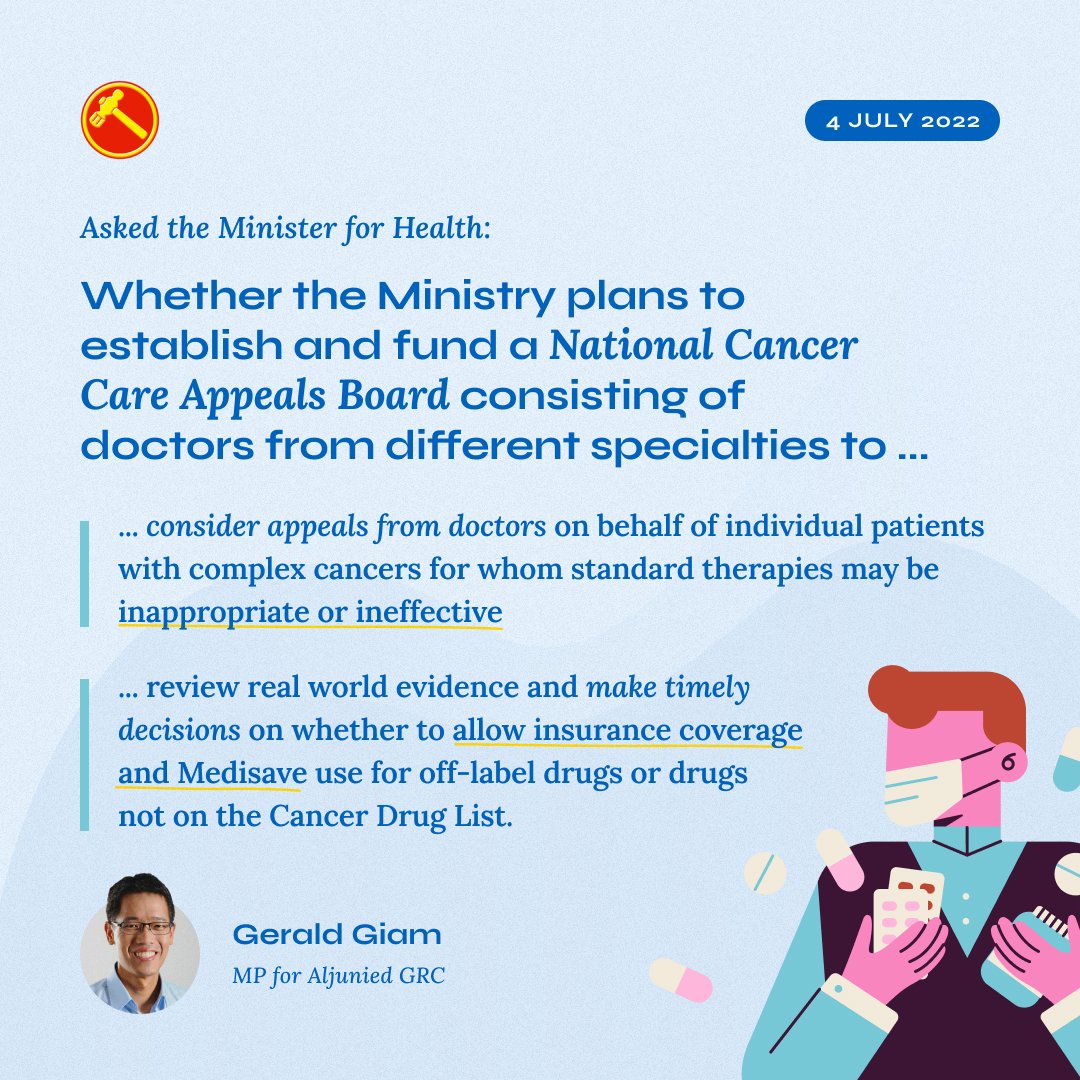The upcoming changes to the insurance coverage of cancer drugs not on the Ministry of Health (MOH)’s Cancer Drug List may affect patients with rare cancers, who may find themselves saddled with far higher bills for unsubsidised drugs.
On 4 July 2022, I asked the Minister for Health two Parliamentary questions on this issue:
Mr Gerald Giam Yean Song asked the Minister for Health (a) whether the Ministry has assessed to what extent the new limitations on insurance coverage and Medisave use for cancer drug treatments will impact doctors’ treatment decisions for their patients based on their clinical judgement; and (b) how it will affect patient care for those suffering from less common cancers.
Mr Gerald Giam Yean Song asked the Minister for Health whether his Ministry plans to establish and fund a National Cancer Care Appeals Board consisting of doctors from different specialties to discuss appeals from doctors on behalf of individual patients with complex cancers for whom standard therapies may be inappropriate or ineffective, review real world evidence and make timely decisions on whether to allow insurance coverage and Medisave use for off-label drugs or drugs not on the Cancer Drug List.
Senior Parliamentary Secretary (Health) Rahayu Mazam responded to my questions on 5 July 2022. After her answer, I asked her several supplementary questions:
I’m not sure if my question on the introduction of a National Cancer Care Appeals Board was answered. I understand from the Agency for Care Effectiveness (ACE) website which SPS just referred to that it takes 10-11 months from the time pharmaceutical companies submit their pre-submission form to ACE, to the time the Drug Advisory Committee (DAC) meets. However, for individual cancer patients for whom time is of the essence, anything more than one week may be too long to wait for a decision on a drug subsidy approval. Can we therefore have a National Cancer Care Appeals Board which can make rigorous yet speedy decisions to subsidise drugs for individual patients, to allow these patients to get the life-saving drugs they need? The DAC can then take the necessary time to review the drug for inclusion on the Cancer Drug List to benefit patients at the national level.
Secondly, has MOH modelled out how many patients per year will be adversely affected by these changes to the insurance policies, how much in cost savings are expected, and what is the price in human lives that MOH is prepared to accept in order to achieve these cost savings?
The SPS’ replies will be published in the Parliament Hansard and reported in the media.
